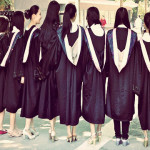RUG falls in QS ranking
The drop is probably due to a change in the measures QS uses to determine their rankings. This year, QS decided for the first time to weigh the amount of citations for each faculty rather than the university as a whole. Universities which had strong natural and life sciences departments always scored higher as a result, because these areas of expertise always publish more than the arts, for instance.
Furthermore, QS also bases its scores on the international reputation of universities. Other factors include the amount of staff members in relation to the amount of students, the institute’s reputation as an employer, and its degree of internationalisation.
Not the only one to fall
The RUG was not the only Dutch institute to fall. Amsterdam fell 5 places, Utrecht 22, Leiden 20, and the Erasmus University even fell 36 places. Conversely, technological institutes such as Delft and Eindhoven rose in the ranking.
Together with the Shanghai and Times Higher Education (THE) ranking lists, the QS ranking is considered one of the most important in the world. Earlier this month, it was announced that the RUG had actually risen in the Shanghai list, going from 82nd to 75th place.
Top 100
QS and THE, however, are less favourable. Two years ago, the RUG could still proudly call itself a Top 100 university, occupying 98th place in the THE ranking. However, the university lost its place the following year, ending up in 117th place. This can have a negative influence on the university’s ability to attract international students who may use the ranking to decide which university to attend. With its 100th place in the QS ranking, the RUG can still call itself a Top 100 university, but it is the second drop in a row.
The THE ranking is expected to come out later this month.






